In 2020, the W.K. Kellogg Foundation marked its 90th anniversary by launching the Racial Equity 2030 Global Challenge, awarding $90 million to fuel innovative and actionable solutions to build a more racially equitable future. After supporting finalists for a year as they developed their ideas, in Oct. 2022, WKKF announced the five awardees. They will receive a combined $80 million to advance racial equity over the next eight years.
How did we get here?
“Racial Equity 2030 is an opportunity for communities to reconstruct the systems and institutions that perpetuate inequities. This is our nation’s, and our world’s, greatest unfinished business. Now is our moment to reimagine what the future can be for our children.”
La June Montgomery Tabron, president and CEO of the W.K. Kellogg Foundation
The Crisis
In 2020, the COVID-19 pandemic laid bare stark inequities across the world. The May 2020 murder of George Floyd gave rise to calls for racial justice that went global. Over and over, it was clear how too many children’s futures are bound by systemic inequities that imply the color of their skin or ethnic origin should determine their opportunities and family circumstances. The systems that perpetuate inequity and injustice were generations in the making, and could not be easily or quickly uprooted.
Our Commitment
For decades, the W.K. Kellogg Foundation has worked alongside communities to advance racial equity and racial healing, community engagement and leadership development. Racial equity funding first appeared in the foundation’s grantmaking in the 1940s. In the 1990s, WKKF established an internal Diversity Advisory Committee. In the following years, the foundation intentionally focused on promoting diversity as an integrated priority in grantmaking. In 2007, we formally committed to being an anti-racist organization that promotes racial equity and racial healing which has shaped both our funding and operational practices. Rooted in history and in honor of the foundation’s 90th anniversary in 2020, we launched Racial Equity 2030 to tackle the primary challenge of our time.
The Vision
Racial equity affirms that all people, regardless of their racial/ethnic group identification, skin color or physical traits, deserve an equal opportunity to experience well-being in a just society. While racial equity may look different around the world, we believe that achieving racial equity means that a person’s identity would not determine treatment or predict life outcomes. We believe that racial equity requires both systems transformation and racial healing.
“We talk about racial equity, but when you get down to defining what we mean, we had to develop a global definition. For us, it’s looking at systems, practices and policies that dehumanize people and create disparities as they are executed, where people and communities see the disparate impacts and want to make a difference.”
La June Montgomery Tabron
The Trajectory
Prioritizing equity in all aspects of the application process, WKKF sought to support grassroots innovation with the understanding that change takes time. Longer-term funding reflects our commitment to each awardee and their work of transformational change. The timing for this challenge also aligned with the Sustainable Development Goals (SDGs) set by the United Nations General Assembly intended to be achieved by 2030. The year 2030 is also our foundation’s 100th anniversary.
The Applicants
Racial Equity 2030 was open to organizations of all types led by teams that center people’s lived experiences and have community members closest to the issue as a part of the projects’ leadership. From the outset of the challenge, we prioritized outreach to communities of color, Indigenous communities, community-based organizations and communities outside our own networks. We encouraged all organizations to submit their bold thinking on how to address the issue of racial equity in their own context.
The Challenge received 1,453 submissions from 72 countries. Applications were evaluated during a five-month process involving reviews by peers and experts from across the world. We identified four criteria for evaluating applications: game-changing, equitable, bold and achievable. We named the 10 finalists in Sept. 2021, and each received a $1 million planning grant and nine months of capacity-building support. After a meticulous external and internal review process, we arrived at our five awardees in Oct. 2022.
The Awardees
The transformational work of each of the five awardees reflects the complexity of achieving racial equity and the structural changes that are needed to sustain meaningful, long-term change. They’re each promoting access to economic opportunity, education, improved governance and justice, and social well-being. We’re honored to work alongside each of the awardees and help them scale their bold ideas.
Their Initiatives
Healing Through Justice, a youth-led initiative to heal Black and Brown youth in Chicago with skills building, activism, leadership training, healing circles, and community outreach.
Indigenous Lands Initiative, a permanent Native-led institution to equip Indigenous people to secure ownership of their land in Mexico, Central, and South America, providing them essential technical and legal aid.
Kawailoa, a transformative model to end youth incarceration in Hawai’i by employing Native approaches to healing and restorative justice.
Namati is overcoming environmental racism by knowing, using and shaping law in Kenya, Sierra Leone and the U.S., a global project to equip communities of color with the power of law to protect themselves and ultimately transform environmental policy.
The SETA Project (Sistema Educacional Transformador e Antirracista), a campaign across Brazil to disrupt racial, educational and social inequities and begin a process for national racial healing through an antiracist education system.

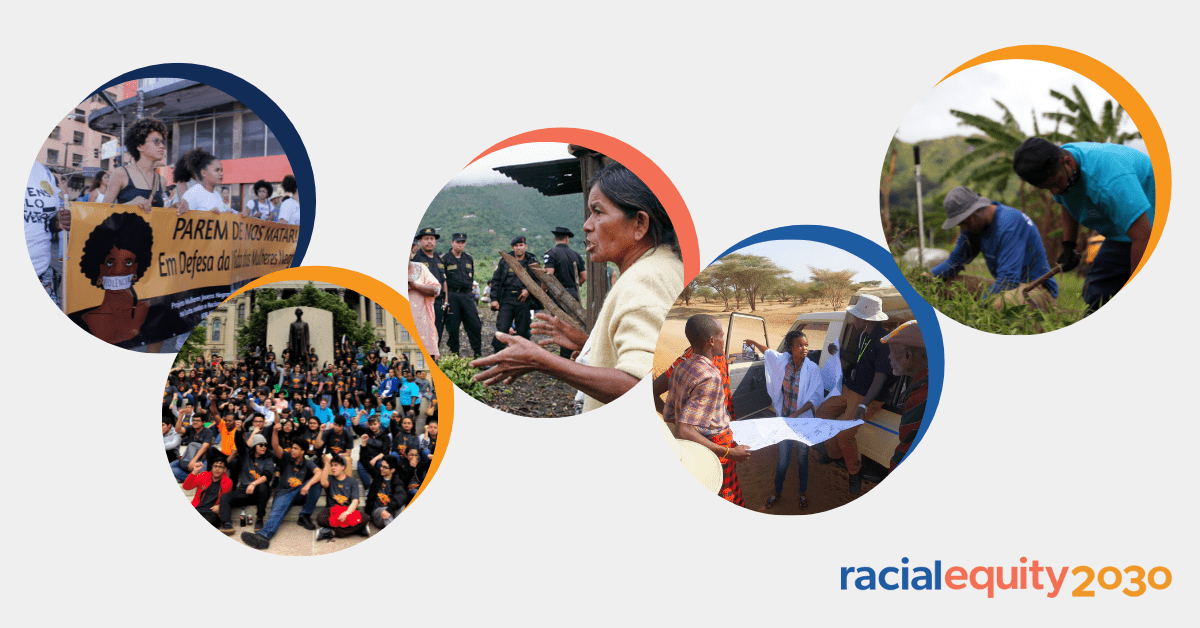
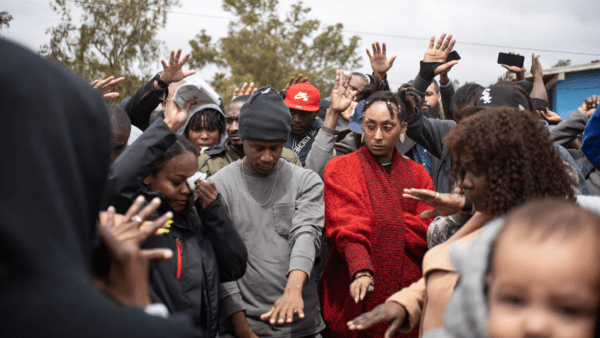
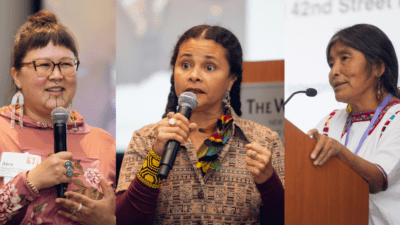
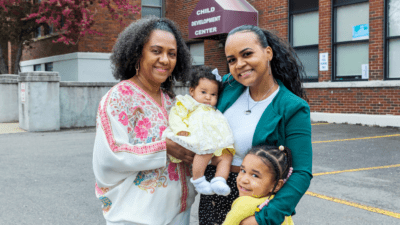
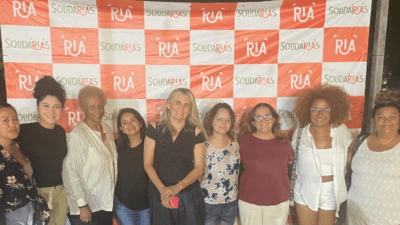
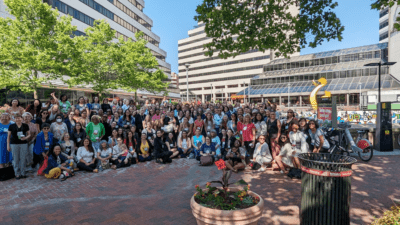

Comments